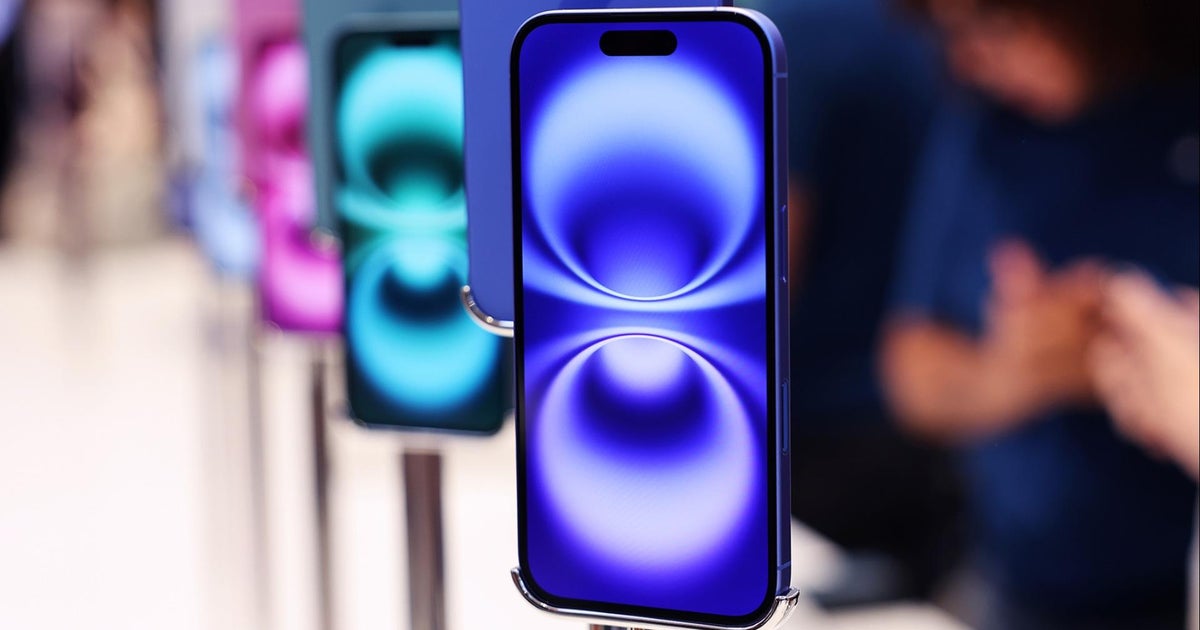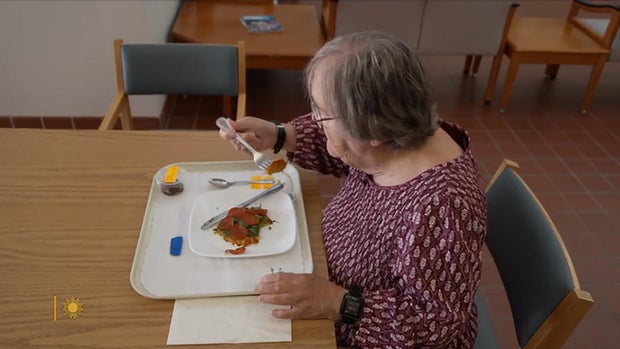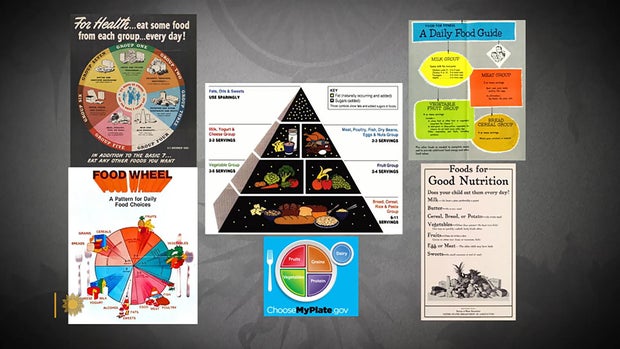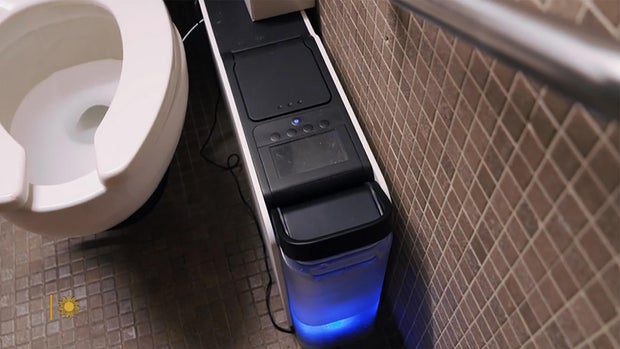CBS News
Apple’s iPhone 16 is available in stores — but without AI

Apple’s iPhone 16 lineup hit stores in some 60 countries Friday, but have not exactly been flying off the shelves.
Some analysts attribute tepid demand for the new phones to the fact that they were missing a key feature out of the box: the tech giant’s much-hyped artificial intelligence features.
“One of the key factors for the lower-than-expected demand for the iPhone 16 Pro series is that the major selling point, Apple Intelligence, is not available at launch alongside the iPhone 16 release,” TF International Securities Apple analyst Ming-Chi Kuo wrote in a blogpost.
Despite the company’s best efforts, the launch of Apple Intelligence is more complicated and drawn out than much of the marketing surrounding it suggests.
The new iPhones come preloaded with iOS 18, Apple’s latest software upgrade. Contrary to earlier reports, however, iOS 18 does not include artificial intelligence enhancements. Instead, Apple Intelligence will begin with iOS 18.1, set to arrive in October, according to Apple.
Consumers anxious to test out Apple Intelligence can download a public beta version of the software which was made available Thursday — just three days after the release of iOS 18. Apple Intelligence features integrated into iOS 18.1 include “text rewriting tools,” and a “glowy new Siri design,” the Verge reported.
iPhone 16 series first-weekend pre-order sales were down about 13% compared with those of the iPhone 15 series during the same period last year, noted Kuo. “The key factor is the lower-than-expected demand for the iPhone 16 Pro series,” she said.
Kuo added that Apple employees, who typically have to wait several weeks after new iPhone models are released to purchase them, are able to use their employee discounts on the new phones now.
“This could be another sign that the early demand for the iPhone 16 is below expectations,” Kuo wrote in a post on X.
Rollout of Apple Intelligence will be gradual
Once iOS 18.1 officially is officially released, Apple Intelligence will be integrated into apps like Mail and Notes. The new technology is designed to simplify daily chores like list-writing, “[harnessing] the power of Apple silicon to understand and create language and images, take action across apps, and draw from personal context to simplify and accelerate everyday tasks,” according to Apple.
Apple Intelligence is also expected to make Apple’s virtual assistant, Siri, work better — though enhancements may likely be subtle at first. With the first iOS upgrade, Siri will be endowed “with richer language-understanding capabilities,” according to Apple in a description of the iPhone 16 on its website. Users will also be able to communicate with Siri by text as well, “and switch fluidly between text and voice as they accelerate everyday tasks.”
Apple Intelligence will also work on iPhone 15 Pro models, once the software update arrives.
CNET senior editor Lisa Eadicicco told CBS news she’s not surprised that demand for iPhone 16 isn’t going through the roof.
“For people looking to upgrade, it’s really not about the year-over-year improvements anymore,” she told CBS News. “I think the days of buying the latest iPhone every year are behind us. I think if you have a phone that’s several generations old, those are the people that are really going to benefit form the upgrade because you get longer battery life.”
People only upgrade when they “need” a new phone, said Eadicicco, which is typically every three years or so, according to CNET data.
CBS News
A study to devise nutritional guidance just for you

It’s been said the best meals come from the heart, not from a recipe book. But at this USDA kitchen, there’s no pinch of this, dash of that, no dollops or smidgens of anything. Here, nutritionists in white coats painstakingly measure every single ingredient, down to the tenth of a gram.
Sheryn Stover is expected to eat every crumb of her pizza; any tiny morsels she does miss go back to the kitchen, where they’re scrutinized like evidence of some dietary crime.
Stover (or participant #8180, as she’s known) is one of some 10,000 volunteers enrolled in a $170 million nutrition study run by the National Institutes of Health. “At 78, not many people get to do studies that are going to affect a great amount of people, and I thought this was a great opportunity to do that,” she said.
CBS News
It’s called the Nutrition for Precision Health Study. “When I tell people about the study, the reaction usually is, ‘Oh, that’s so cool, can I do it?'” said coordinator Holly Nicastro.
She explained just what “precise” precisely means: “Precision nutrition means tailoring nutrition or dietary guidance to the individual.”
The government has long offered guidelines to help us eat better. In the 1940s we had the “Basic 7.” In the ’50s, the “Basic 4.” We’ve had the “Food Wheel,” the “Food Pyramid,” and currently, “My Plate.”
CBS News
They’re all well-intentioned, except they’re all based on averages – what works best for most people, most of the time. But according to Nicastro, there is no one best way to eat. “We know from virtually every nutrition study ever conducted, we have inner individual variability,” she said. “That means we have some people that are going to respond, and some people that aren’t. There’s no one-size-fits-all.”
The study’s participants, like Stover, are all being drawn from another NIH study program called All Of Us, a massive undertaking to create a database of at least a million people who are volunteering everything from their electronic health records to their DNA. It was from that All of Us research that Stover discovered she has the gene that makes some foods taste bitter, which could explain why she ate more of one kind of food than another.
Professor Sai Das, who oversees the study at Tufts University, says the goal of precision nutrition is to drill down even deeper into those individual differences. “We’re moving away from just saying everybody go do this, to being able to say, ‘Okay, if you have X, Y and Z characteristics, then you’re more likely to respond to a diet, and somebody else that has A, B and C characteristics will be responding to the diet differently,'” Das said.
It’s a big commitment for Stover, who is one of 150 people being paid to live at a handful of test sites around the country for six weeks – two weeks at a time. It’s so precise she can’t even go for a walk without a dietary chaperone. “Well, you could stop and buy candy … God forbid, you can’t do that!” she laughed.
While she’s here, everything from her resting metabolic rate, her body fat percentage, her bone mineral content, even the microbes in her gut (digested by a machine that essentially is a smart toilet paper reading device) are being analyzed for how hers may differ from someone else’s.
Nicastro said, “We really think that what’s going on in your poop is going to tell us a lot of information about your health and how you respond to food.”
CBS News
Stover says she doesn’t mind, except for the odd sounds the machine makes. While she is a live-in participant, thousands of others are participating from their homes, where electronic wearables track all kinds of health data, including special glasses that record everything they eat, activated when someone starts chewing. Artificial intelligence can then be used to determine not only which foods the person is eating, but how many calories are consumed.
This study is expected to be wrapped up by 2027, and because of it, we may indeed know not only to eat more fruits and vegetables, but what combination of foods is really best for us. The question that even Holly Nicastro can’t answer is, will we listen? “You can lead a horse to water; you can’t make them drink,” she said. “We can tailor the interventions all day. But one hypothesis I have is that if the guidance is tailored to the individual, it’s going to make that individual more likely to follow it, because this is for me, this was designed for me.”
For more info:
Story produced by Mark Hudspeth. Editor: Ed Givnish.
“Sunday Morning” 2024 “Food Issue” recipe index
Delicious menu suggestions from top chefs, cookbook authors, food writers, restaurateurs, and the editors of Food & Wine magazine.
CBS News
A new generation of shopping cart, with GPS and AI

Watch CBS News
Be the first to know
Get browser notifications for breaking news, live events, and exclusive reporting.
CBS News
“All hands on deck” for Idaho’s annual potato harvest

Watch CBS News
Be the first to know
Get browser notifications for breaking news, live events, and exclusive reporting.





